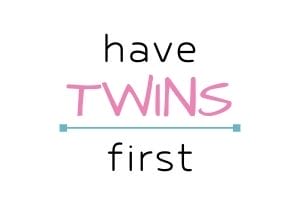Have you noticed your 15 month old toddler resisting sleep lately? Your toddler may be experiencing a sleep regression!
These regressions in sleep are fairly common and you may have already dealt with them previously. Either way, when your baby or toddler isn’t sleeping it tests your patience.
Just remember the 15 month toddler sleep regression is not all doom and gloom because it does not last forever. In this article, I will review how to tell if your toddler is going through a sleep regression and ways to deal with this challenging time.
Please note, there are affiliate links in this post. Read my privacy & disclosure policy at the bottom of this page to learn more.
Signs Of Toddler Sleep Regression at 15 Months
Sleep regressions happen more than once in your little one’s life (like after the birth of a new baby), but one of the big ones is around the 15 month mark. At this age your child typically starts becoming more independent, but at the same time also shows signs of clinginess and possibly separation anxiety too.
These combined forces create the perfect storm for a sleep regression. If your baby has always slept well but then suddenly starts fighting sleep, crying, screaming bloody murder, and just seems completely out of sorts when you try to get him or her her down for the night – it may be quite unsettling for you.
What is going on? Why is my baby acting this way?
These may be some of the thoughts that go through your head. With all that said, here are the signs to look for if you suspect your toddler is going through a 15 month sleep regression.
- Irritability – An increase in crying before naps and bedtime hours can be one of the first signals.
- Waking up at irregular hours – Your baby used to sleep through the night, but suddenly night after night he or she is waking up regularly or very early in the morning.
- Missed naps – Due to fussiness and crying.
- Struggling to resettle – When your child struggles to resettle and go back to sleep even though they used to be able to do this.
Do 15 Month Old Toddlers Go Through Sleep Regression?
The answer is yes, but also no. The reason for this is all toddlers and babies are not the same. However for the most part, you will experience some kind of interruption or change in your toddler’s sleep habits anywhere between 12 and 15 months of age.
If you have already passed this age and have not really experienced any sleep problems with your child, count yourself lucky.
How Long Does a 15 Month Toddler Sleep Regression Last?
As I mentioned before, this period in your toddler’s life will not last forever. However, in the midst of it all you may be wondering how long your 15 month toddler’s sleep regression will go on for.
The good news is that it will probably work itself out within a few weeks – assuming there are no other factors causing the sleep regression (such as illness, added stress in the home, etc.). The key to making this transition as smooth and painless for everyone as possible, is to stick with your plan.
Be sure to keep with your original sleep routine. If your little one naps at 1pm everyday, keep going with that. If bedtime is at 8pm, make sure you stick to that routine.
This includes bath time and feeding time too, keep it all the same. Even if your toddler does not actually fall asleep when you put her down, eventually the sleep regression will pass and she will be right back into her routine.
Reasons Toddlers Have a Sleep Regression At 15 Months
This phase in your toddler’s life is not just because she feels like making your life even more challenging. It is actually just as scary and frustrating for your toddler.
During the 15 month sleep regression your toddler is overtired and overstimulated. Neither of these are fun for your toddler.
With that in mind, below you will find some reasons for a 15 month toddler sleep regression. Understanding the reasons for your toddler’s behavior can help make it easier to adapt and deal with the sleep problems she’s going through.
Separation Anxiety
The clinginess stage peaks between 10 and 18 months. This period of time often results in some sort of sleep regression.
Your little one will want to be with you at all costs and for every waking minute. That means when it’s time to put your baby down to nap or sleep at night, it can be become extremely stressful for her.
Teething
During this time period your toddler will most likely start cutting molars. These are probably the most painful and uncomfortable of the teeth that come in.
Teething is an absolute sleep disruptor at the best of times, but molars are a whole different level. Now pair that with all the other things going on with your growing toddler and this could definitely result in a sleep regression.
Testing Boundaries
The toddler age is when independence starts to grow. This means your toddler will likely start testing boundaries.
How far can I REALLY push mom and dad right now?
So, sleep is something your toddler might consider that she has control over. You might find your toddler trying to avoid sleep no matter what.
Testing boundaries could be the main reason. In this case remember, you need to stick to your guns and keep doing what you have always been doing.
Motor Leaps
Anytime from 12 months onwards your toddler will become a lot more active. She will go from crawling to walking and running (and it will seem like it happened overnight).
This skill will have your toddler wanting to stay awake for longer so she can really get the most out of her newly discovered freedom of walking and running. Being able to walk will also allow your toddler to check out some of her curiosities.
Having these new abilities could lead your toddler to fight sleep because she wants to explore as much as possible. The good news is that eventually this will change and the active lifestyle will start to make your toddler more tired and actually WANT to sleep – so just stick with it.
Fears and Phobias
As your little one grows and develops a sense of self, along with that comes fears and phobias. The most common ones are fear of the dark and fear of being left alone.
One way to combat this is to introduce a night light (if your toddler doesn’t have one already have). You can also sit with your child for a little while while she drifts off to sleep.
This should not be something you have to do forever, but you can go with it for the time that it is needed. Additionally, you can listen and empathize with your toddler.
One way to do this is by assuring your child that there is absolutely nothing to be afraid of and that you are always there to protect her.
Dropped Nap
Another reason your toddler may be experiencing sleep regression is a dropped nap. Typically this is the morning nap.
When your toddler drops from 2 naps to 1, her internal clock is thrown off a little bit. It takes time for it to readjust.
But once your toddler becomes accustomed to her new sleep routine during the day, she will slowly adapt and bedtime will go back to normal.

How To Solve Toddler Sleep Regressions At 15 Months
Now that we have covered the reasons toddlers have sleep regression at 15 months, it is time to discover the ways you can solve your toddler’s sleep problems.
Hopefully, these ideas will give you some peace and also make things a little less stressful and anxiety-ridden for your little one.
Toddler Won’t Go To Sleep Or Wakes Up At Night
When your toddler won’t go to bed, the best thing you can do for everyone’s sanity is to try and stick to the bedtime routine as much as possible. The key to getting through it all – give attention as needed, but do not deviate from what you would normally do with your toddler at bedtime.
It is also important to watch how you react to your child. It is a fine balance, but do not become angry and scream or shout. You also need to be firm in your approach so that eventually the routine will go back to normal.
If your toddler is waking up at night, do not remove him or her from the room. Instead, you can stay with your child for a short time.
If your child is thirsty, give her some warm milk or water. The important thing is to keep your toddler in the space where she sleeps and limit any talking and interaction as much as possible.
I will say that I went through my toddler waking up at night and eventually I had to reintroduce the Ferber sleep training method. It was the only thing that worked and it took about 2 nights of sleep training to get her back to normal.
You can use the Ferber method for going to bed initially or in the middle of the night like I did.
Toddler Won’t Take Naps
If your toddler’s not napping, I recommend just rolling with it. It will be bumpy and there will be tantrums as your toddler tries to assert herself.
You can let the nap slide for the day, your little one will eventually start napping again. For now, choose your battles wisely.
Just continue to put your toddler down for naps. Sometimes she might sleep and other days she might skip them all together. This is something that will pass, but it’s important to continue putting your child down for regular naps during this stage.
Toddler Wakes Up Too Early
Kids love to wake up early – especially when you need more sleep. If you can, try to get your toddler to go back to sleep, or at least lay quietly in her bed or crib instead of jumping into activities.
You could consider shifting the time later that you put your toddler to sleep at night. This might allow her to sleep later into the morning.
Another option might be to embrace dropping a nap, so your toddler sleeps longer at night. Overall, early waking is something that could happen eventually.
The best way to address it is with a later bedtime. But, do be mindful that your toddler is getting the total amount of sleep she needs. Overtired children do not sleep well, so be sure that’s not the reason for the early wake-ups.
Additional Toddler Sleep Help
You now understand why toddlers have sleep regressions at 15 months and have some tips up your sleeve to get through them. But, maybe this has been going on a long time and you’re at your wits end.
In this case, I recommend two options. First, you might just need some help with a typical toddler schedule. You can check out the items below for that.
Or, for more detailed tips, schedules, and toddler sleep help, you will want this toddler sleep course. It was created by a pediatric sleep consultant who lays out the simple things you need to do to get your toddler sleeping well.
Whether you are sick of co-sleeping, need help with naps, or just want your toddler to sleep through the night. This course is loaded with simple, actionable steps you need to get your toddler sleeping well.
If your toddler is going through a sleep regression at 15 months, it’s not fun at all!
Even though your toddler’s sleep regression is very stressful for everyone, there are ways to deal with it. The main thing to remember is that this part of your lives will not last forever.
If you manage to stick with it and roll with the punches, things will get back to their normal routine within a couple weeks. An important item to remember is continuing to stick with your little one’s daily routine.
Good luck as you navigate this tricky part of parenthood.
Other toddler sleep posts you might be interested in:






